The brackets are set for March Madness, with big payouts on the line for schools and conferences. … One of the biggest bets on the NCAA tournament has a long history. … Selection Sunday hasn’t always gone as smoothly as it did this year. … Plans to revive the home of the Preakness Stakes add to the region’s growing upgrades. … And the Stanley Cup celebrates an important anniversary.
—Eric Fisher and David Rumsey
|
|
|
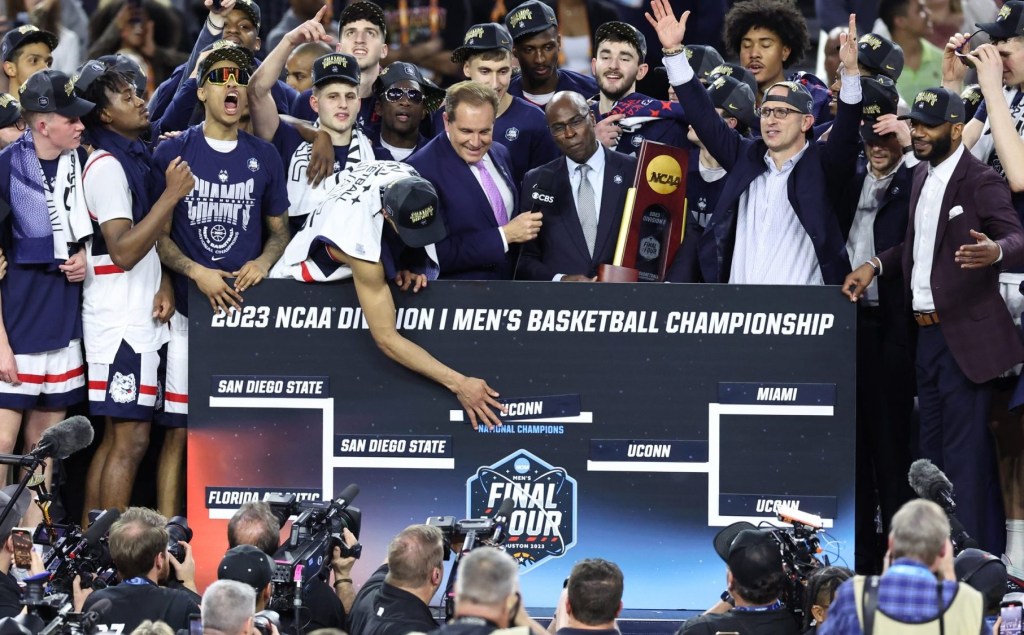
|
Troy Taormina-USA TODAY Sports
|
March Madness officially begins Tuesday when the First Four of the men’s NCAA tournament tips off in Dayton, with 104 men’s and women’s games playing out across the country over the next week. Of note this year: The Big 12 and SEC have more teams in the men’s tournament than any other conference, putting them in prime position for a big payday, thanks to an NCAA unit system that rewards success in March.
The NCAA, which brings in some $900 million in annual media rights fees from CBS and Warner Bros. Discovery, allocates payment units to all 32 conferences that compete in the men’s tournament, with additional units handed out for at-large bids, and any schools advancing to subsequent rounds up until the Final Four. In recent seasons the unit value has been about $2 million each, according to multiple reports, and they are paid out to conferences over six years. In total, 132 units (worth, one can guess, at least $264 million) will be handed out, meaning that about $128 million should still be up for grabs via the 64 available units this month, in addition to the $136 million already set for the 68 tournament teams.
Last year, the SEC topped all other conferences with roughly $34 million from 17 units earned by its eight teams in the 2023 tournament, according to The Athletic. Here’s where things stand for conferences this year, based on how many teams they have in the tournament and the estimated amount of money they are already guaranteed:
- Big 12: 8 bids, $16 million
- SEC: 8 bids, $16 million
- Big Ten: 6 bids, $12 million
- Mountain West: 6 bids, $12 million
- ACC: 5 bids, $10 million
- Pac-12: 4 bids, $8 million
- Big East: 3 bids, $6 million
- American: 2 bids, $4 million
- Atlantic 10: 2 bids, $4 million
- WCC: 2 bids, $4 million
Mid-Major Stakes
The remaining 22 conferences are guaranteed $2 million each from their sole tournament bids. The financial stakes are particularly enormous for mid-major conferences that are able to land additional at-large berths beyond their conference champions. For years, a fervent debate has existed within college basketball as to whether it’s better to see a lesser-tier team from a Power 5 conference gain one of the final tournament slots versus a top-performing one from a mid-major—and many bracketology sites are devoted to that very question, with millions of dollars at stake for the involved schools.
But amid transformative change sweeping college sports, it’s only growing harder for those mid-majors to land bids on Selection Sunday. SEC commissioner Greg Sankey told ESPN last week that he now favors potentially eliminating automatic qualifiers for smaller conferences, particularly in the wake of Power 5 conference expansion.
“We are giving away highly competitive opportunities for automatic qualifiers [from smaller conferences], and I think that pressure is going to rise as we have more competitive basketball leagues at the top end because of expansion.” Sankey said.
Women’s Payday Ahead?
Currently, schools in the women’s tournament do not receive any revenue distribution units. But the NCAA said that could change as early as next year as ESPN’s new eight-year, $920 million media rights deal for 40 college championships begins. That new deal values women’s March Madness at $65 million annually—more than half of the $115 million yearly total ESPN will be paying.
|
|
|
|
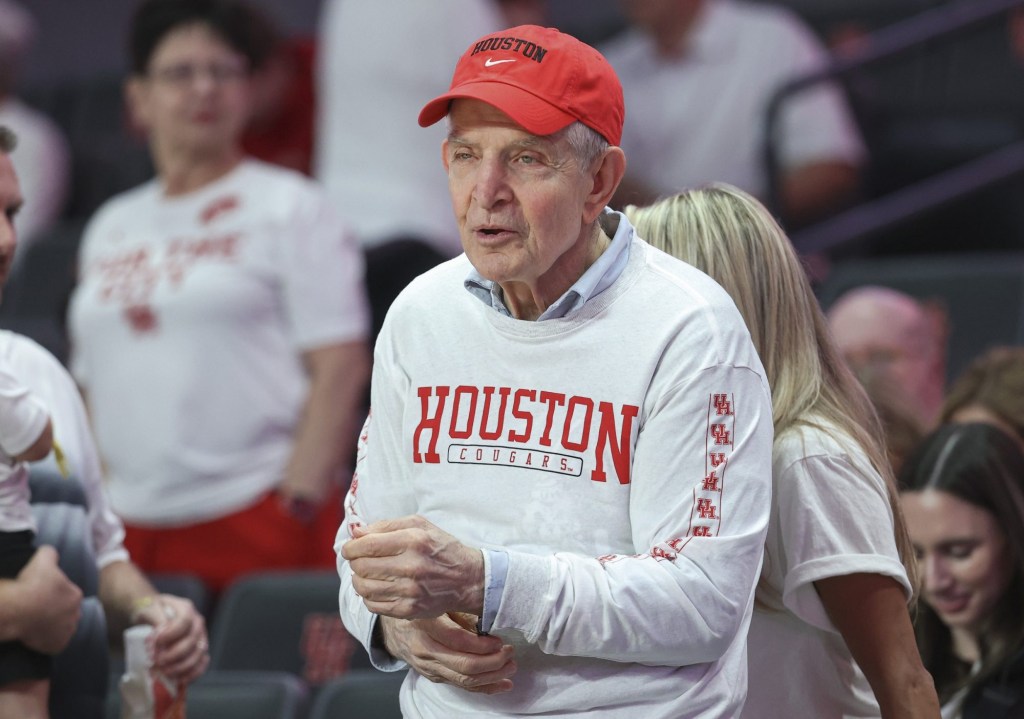
|
Troy Taormina-USA TODAY Sports
|
The Houston men’s basketball team is +600 at most sportsbooks to win the NCAA tournament as a No. 1 seed for the second straight year, this time in the South region, and chances are you’ve probably heard of the school’s biggest backer.
Jim McIngvale, better known as “Mattress Mack,” has already wagered $1 million on the Cougars to cut down the nets at the end of March Madness and win their first national championship. But it’s not because he has an inside tip or even a strong inkling that Houston will be victorious. The Texas-based business mogul, owner of the Gallery Furniture retail chain, routinely makes headlines around big sporting events for his big bets—but in reality his wagers carry far less risk than it might seem, thanks to a fairly simple scheme.
Here’s how it works:
- Gallery Furniture runs a promotion: In this case, customers who purchase a mattress of $4,000 or more get it for free if Houston wins the NCAA tournament.
- Once enough mattresses are bought, McIngvale then places a bet on Houston to cover his potential losses.
- This year’s $1 million bet was placed at +750 odds, meaning McIngvale would profit $7.5 million.
- If Houston wins, Gallery Furniture could refund up to 1,875 $4,000 mattress purchases.
- As long as at least 250 mattresses were purchased, those sales would cover McIngvale’s bet.
- If Houston loses, he’s out his $1 million, but he’s also sold a boatload of mattresses with the enticing deal.
McIngvale won $72.6 million from betting on the Astros to win the World Series in 2022. But he’s also had his fair share of losses, like the $4.1 million he put on Houston to win last year’s NCAA tournament. So, no matter how Houston finishes in March Madness, don’t feel too bad or get too impressed with Mattress Mack’s “bet.”
|
|
|
|

|
Tommy Gilligan-USA TODAY Sports
|
The often-overlooked middle leg of horse racing’s Triple Crown is poised to see a significant facility upgrade, one that will both bring it closer to parity with the sport’s other two marquee races, and also add to a historic sports-related transformation unfolding across the Baltimore-Washington region.
Maryland’s legislature, which has less than a month remaining in its current session, is now considering a $400 million bond measure that would rebuild Baltimore’s Pimlico Race Course, a 153-year-old facility that hosts the Preakness Stakes each year but has fallen into disrepair. The latest plan, advancing upon both a prior effort detailed in January and a separate blueprint from 2020, would see the Stronach Group transfer ownership of the racetrack to a newly created state-led nonprofit organization.
The measure in part represents a catch-up move for the Preakness Stakes and Pimlico following other work already finished or underway for the sites of the Kentucky Derby and Belmont Stakes. Louisville’s Churchill Downs is completing a $200 million capital improvement in time for the 150th running of the Kentucky Derby in May, while Belmont Park is getting a $455 million makeover that will relocate the 2024 Belmont Stakes to Saratoga Race Course and potentially the 2025 race as well.
In addition to upgrades to the racetrack itself, other components include a hotel and event center, parking garage, and a new training facility.
“Every 10 years, the legislature tried to solve the problem, and every 10 years, they kicked the can down the road with Band-Aids,” said Greg Cross, chair of the Maryland Thoroughbred Racetrack Operating Authority. “This is the first time we’re actually doing something new.”
Capital Change
The Pimlico renovations now under consideration add to arguably the most change-filled eight months in the Mid-Atlantic pro sports history. Just since last July, both the Commanders and Orioles have been sold, efforts advanced to build a new venue on the RFK Stadium site, funding was approved to renovate Oriole Park at Camden Yards, Wizards and Capitals owner Ted Leonsis has attempted and initially failed in his attempt to build a $2 billion arena in Alexandria., Va., and the Mid-Atlantic Sports Network is entering a new era with regard to both distribution on dominant cable carrier Comcast and rights fees paid to the Orioles and Nationals.
If the Pimlico funding effort is successful, the Preakness Stakes would relocate in 2026 to nearby Laurel Park before returning to Baltimore the following year.
|
|
|
|
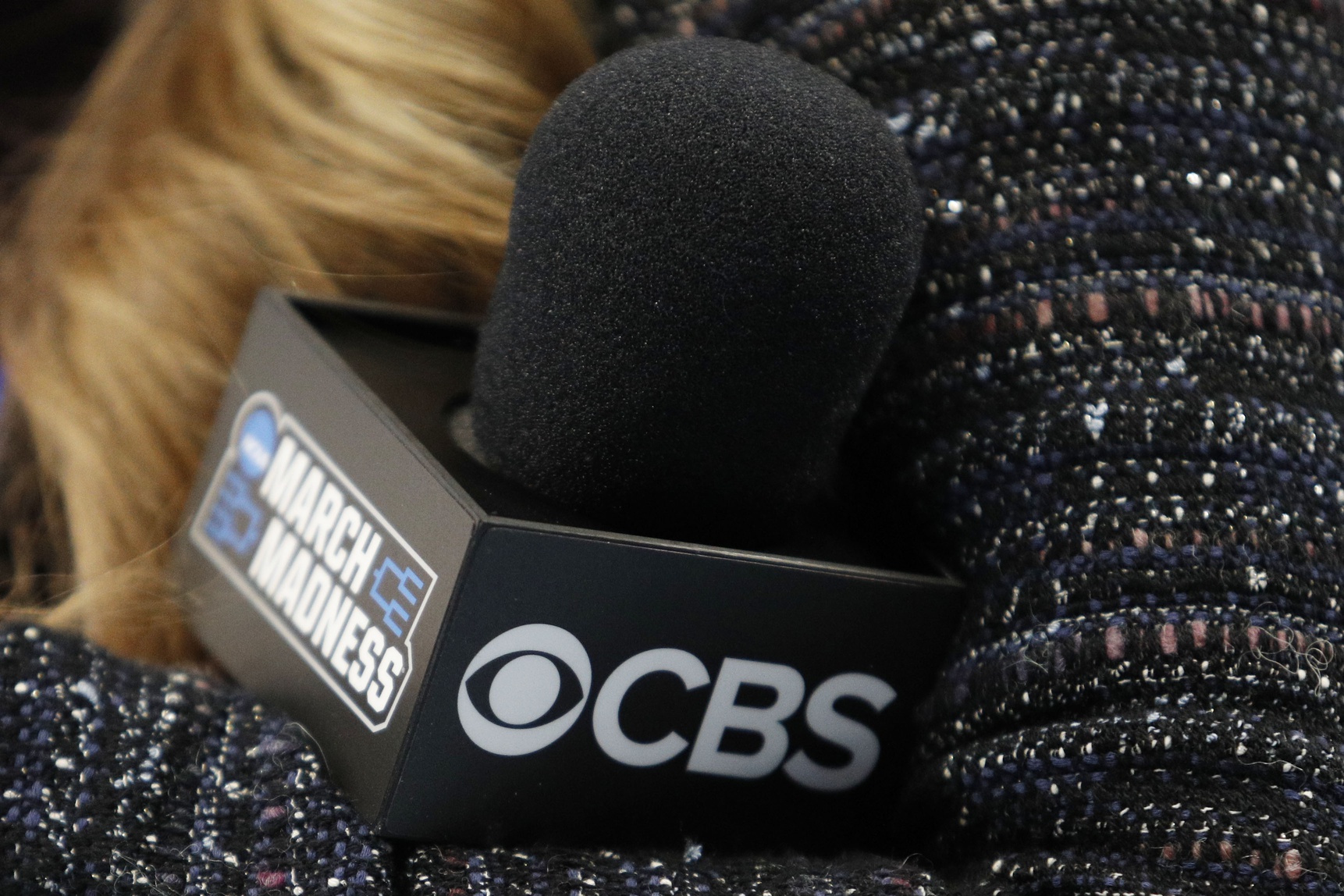
|
For CBS, the 35th edition of the NCAA Men’s Basketball Championship Selection Show, in March of 2016, was shaping up to be another smash hit. Ratings for college basketball were through the roof, and the previous March Madness tournament had drawn the biggest audience in 22 years. But then the unthinkable happened: The bracket was leaked online before CBS could reveal it on the show. Front Office Sports columnist Mike McCarthy joins the podcast today to explain how this scoop went down and how the network’s overambitious plan that year—pushing the show to two hours—came back to haunt it.
🎧 Listen and subscribe on Apple, Google, and Spotify.
|
|
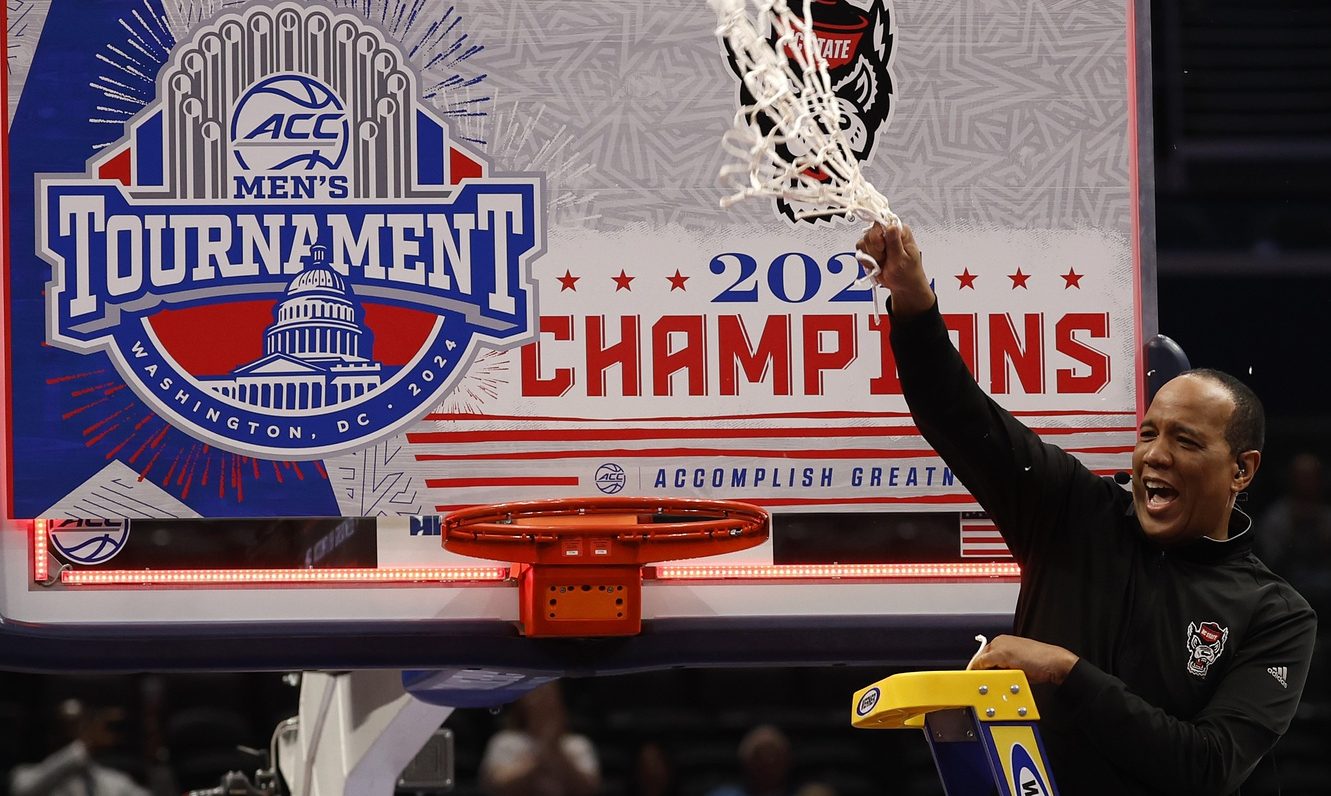
|
$2.5 million
Amount of money N.C. State men’s basketball coach Kevin Keatts will pocket as a result of the Wolfpack’s five-win run en route to capturing the ACC tournament. Keatts will receive an automatic two-year contract extension through April 2030, a $400,000 raise starting next season, a $100,000 bonus for the ACC championship, and at least $10,000 for the NCAA tournament appearance.
|
|

|
On this day 132 years ago: Lord Stanley of Preston, Governor General of Canada, announced his donation of a silver cup to the best hockey team in the country, birthing what is now widely regarded as the foremost trophy in all of sports. An avid sportsman who was captivated by the rising popularity of hockey in Canada, Stanley’s gift created what was originally known as the Dominion Hockey Challenge Cup.
The NHL exclusively adopted the Stanley Cup as its championship trophy in 1926, and the cup itself has gone through numerous changes in the decades since its formation. Starting as a simple bowl, the cup now has grown into a 35-pound behemoth featuring a series of bands that are periodically retired to make room for the inscription of new champions. The Stanley Cup now also features an extensive series of traditions, including a full-time “keeper of the cup” employed by the Hockey Hall of Fame, and an offseason ritual in which every member of the recent Stanley Cup Final winner gets 24 hours with the trophy to celebrate as they wish.
Amid those worldwide travels, there are now actually three different Stanley Cups: the now-retired original located at the Hockey Hall of Fame in Toronto, the presentation cup awarded to Final winners, and a replica that serves as a stand-in when the presentation cup is not available.
|
|
- After firing Jerry Stackhouse from coaching the Commodores’ men’s basketball team, Vanderbilt owes him approximately $15 million as a buyout. In five seasons, Stackhouse compiled a 70-92 record with zero NCAA tournament appearances.
- Aaron Donald has officially retired after a 10-season career during which he garnered numerous accolades including three NFL Defensive Player of the Year awards, 10 Pro Bowl selections, and eight First-Team All-Pro nods. The Super Bowl champ earned $157 million in his career.
- Chiefs president Mark Donovan has warned that the team might consider relocating if a sales tax for stadium renovations fails to pass on April 2. Despite being worth an estimated $25 billion, the Hunt family is willing to contribute only $300 million toward the $800 million renovations.
|
|
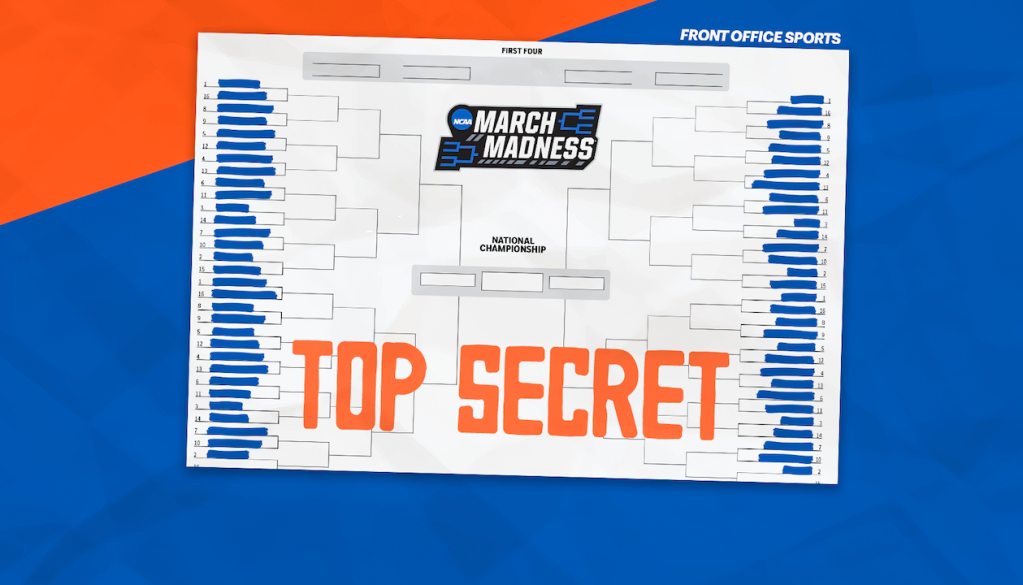 | In 2016, the ‘Selection Show’ backfired when the bracket was leaked anonymously. |
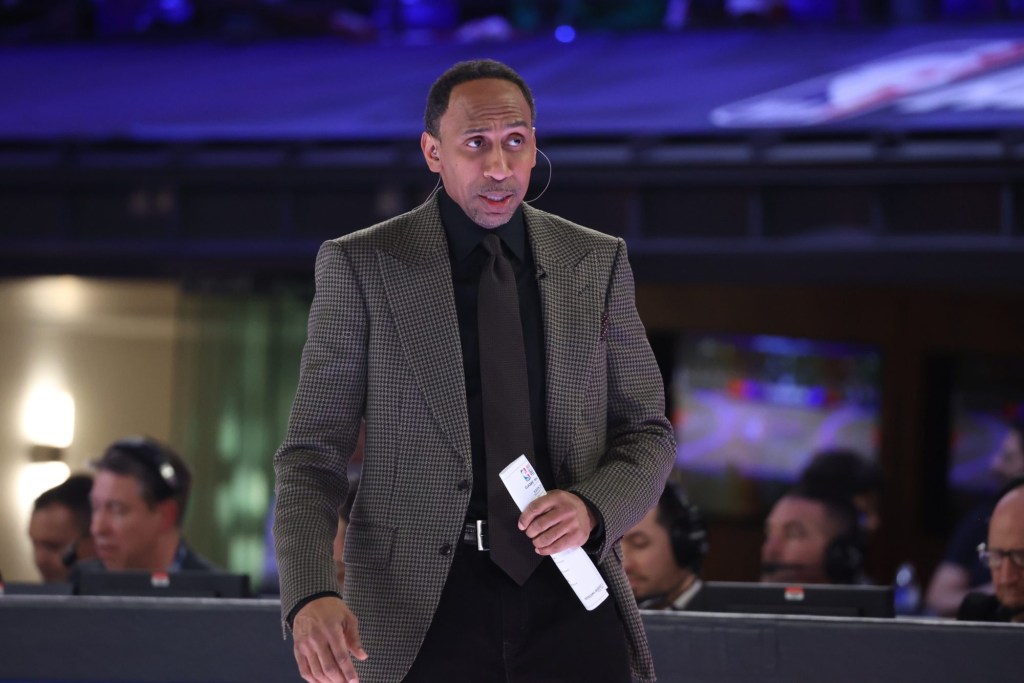 | Smith tells ‘FOS’ he’s interested in succeeding Jimmy Kimmel, who has suggested his own clock is winding down at ABC. |
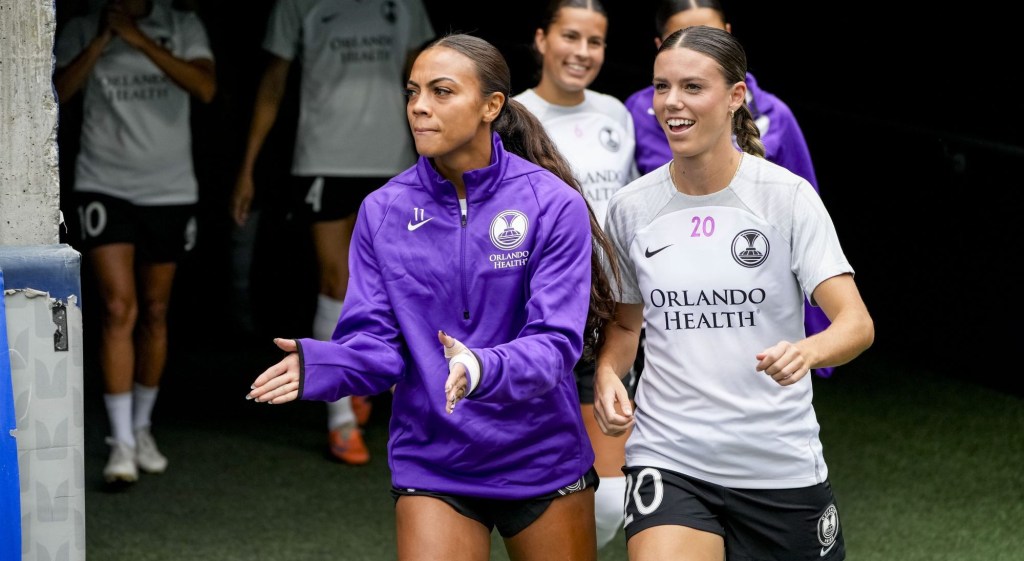 | There’s finally a growing trend to adapt women’s sports to women’s bodies. |
|
|











